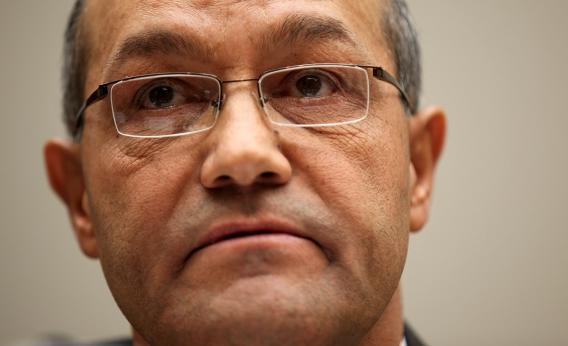I’ve been a bit reluctant to write about the Keystone XL pipeline since, among other things, my uncle is on the board of TransCanada but as the pipeline holdup moves closer to the center of the payroll tax debate, it’s worth saying that progressives have a fairly weak case on the merits here. I’m increasingly alarmed at our failure to make meaningful progress toward a binding agreement on greenhouse gas emissions, but the conceit that stifling random fossil fuel projects is a close substitute for an agreement on emissions reductions doesn’t really make sense.
Now it’s true that, ceteris paribus, higher levels of economic output will lead to higher greenhouse gas emissions and in that sense anything that reduces output helps curb emissions and if you can reduce output by specifically targeting the fossil fuel industry then so much the better. Indeed, I’m sometimes surprised that we don’t see more in the way of deliberate guerilla efforts to sabotage coal plants or blow up oil refineries. But the basic reality is that if you want major emitters to reduce CO2 pollution, what you need is legislation limiting CO2 pollution not action against new pipeline construction. This is particularly true because the world would need new fuel extraction and transportation infrastructure even in a world of falling emissions. Not only are supply restrictions a poor substitute for emission curbs as environmental policy, they compare terribly as economic policy. Taxing carbon emissions produces revenue that can be deployed for useful purposes or used to offset other taxes. Industry rhetoric aside, there’s no reason to think well-designed emission curbs would have any negative economic impact whatsoever. Pipeline construction, by contrast, would create several thousand temporary construction jobs at moment when the country could really use several thousand temporary construction jobs. And beyond the jobs question, as James Hamilton’s Keystone XL costs and benefits rundown argues, looking at things like the current market price of light sweet crude from North Dakota suggests that the total overall economic value created by the pipeline would be quite large.
Now to stop playing dumb for a minute, obviously, we don’t make public policy in a large diverse democracy through rational argument. American politics is currently contested between a vision of the country as a large-scale fossil fuel extractor and a vision of the country as a key driver of moving the world into a more ecologically sustainable paradigm. This is a multi-front war, and American participation in a global process of CO2 emissions reduction is a key strategic objective. Keystone XL is a tactical fight that both sides are engaged in with a level of vehemence that outweighs the objective stakes. A world where America taxes carbon and continues to build out fossil fuel infrastructure is a much better world to live in than a world where both carbon pricing and large new infrastructure projects get vetoed. But that sage compromise isn’t on the table, so the battle continues to play out against a backdrop of political institutions that are heavily weighted in favor of the status quo. We could have economic growth and ecological sustainability, but instead we’re on a path that will deliver neither.
